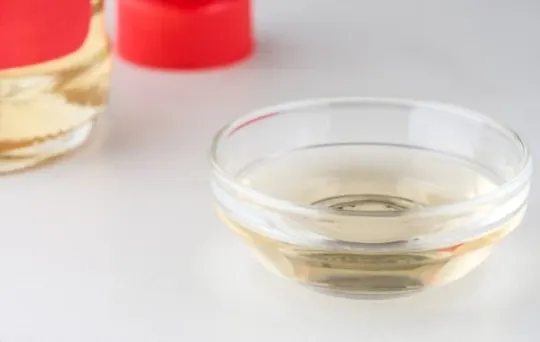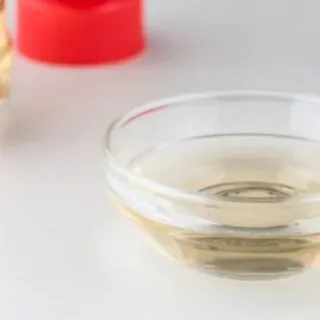One of the most basic and beloved ingredients of Japanese cuisine, mirin is a sweet rice wine used to enhance flavor in numerous sauces, soups, stews, steam dishes and more.
With its subtle mild sweetness and light alcoholic content it has become an irreplaceable part of the culinary landscape – but how long does it last?
If you’ve been wondering whether or not your container full will ever reach its expiry date or if it goes bad after a few months stored away somewhere dark and cool – never fear!
In this comprehensive guide we’ll walk you through everything there is to know about storing mirin correctly be it for short-term use or over long periods of time.
Buckle up folks as we take an in-depth look into mirin shelf life: from what happens when those dates pass by to why proper storage matters so much.
What’s Mirin?

Mirin is a type of Japanese rice wine that is used in cooking.
It is made from rice, sugar and shochu (a type of distilled alcohol).
Mirin has a sweet taste and is used to add flavor to dishes.
It is also used as a glaze for sushi and other seafood dishes.
iT is an important ingredient in Japanese cuisine and has many uses.
It can be used to add sweetness and depth of flavor to dishes.
Mirin can also be used as a glaze or sauce.
When used as a glaze, it gives food a shiny appearance.
Mirin is a versatile ingredient that can be used in many different ways.
If you are new to cooking with mirin, start by using it as a glaze or sauce.
You can also use it to add sweetness and depth of flavor to dishes.
With so many uses, mirin is an ingredient that you will want to keep on hand in your kitchen.
How to Store Mirin?
When it comes to storing mirin, the best thing to do is to keep it in a cool, dark place.
This could be a cupboard or pantry that isn’t exposed to too much light or heat.
Mirin will usually come with a tight-fitting lid, so make sure that this is secure before storing it away.
If you’re not planning on using your mirin within a few months of opening it, then it’s best to transfer it into a glass bottle with a tight-fitting lid.
This will help to prolong its shelf life.
Always make sure that the bottle is clean and dry before adding the mirin, as any water or moisture could cause the sauce to spoil.
Once opened, mirin will last for around 6-12 months before it starts to go off.
However, if stored correctly in a cool, dark place, it can last for up to 2 years.
How Long Does Mirin Last?

Mirin is a type of rice wine used in Japanese cooking.
It adds both sweetness and umami flavor to dishes.
Its flavor is similar to a mild sake, with a bit of sweetness and low alcohol content.
Mirin can last up to two years if stored properly in your pantry.
To ensure quality, make sure it’s stored in a cool and dark place and that the lid is closed tightly.
After opening the bottle, however, it must be refrigerated and typically lasts for 1-2 months once opened before losing its flavor profile.
As with other alcohols, once exposed to air for an extended period of time it can develop off flavors that may not make it suitable for use in cooking.
Mirin isn’t just good for cooking; it makes a great marinade or sauce when mixed with soy sauce or other seasonings such as garlic and ginger.
Can You Freeze Mirin?
Mirin, a sweet and light rice wine, is an essential ingredient in many Japanese dishes such as yakitori, teriyaki and oden.
If you’ve ever been left with extra mirin after using it in your cooking pursuits, you’ve likely wondered whether you can freeze the remainder for later.
The answer to the question is yes.
Freezing mirin helps preserve its flavor and ensure that it’s ready to use at a moment’s notice when you need an additional dash of sweetness for your next culinary delight.
To freeze mirin, simply pour it into an air-tight container or a freezer-proof bag and seal it off completely.
Once frozen, the beverage will last for up to six months before its quality begins to decline.
How to Tell If Mirin is Bad?

Mirin is a Japanese cooking wine that is made from rice.
It has a sweet taste and is often used in sauces and marinades.
Mirin is safe to consume when it is fresh, but it can go bad over time.
There are a few signs that you can look for to determine if your mirin has gone bad.
The first sign that mirin has gone bad is the color. Fresh mirin should be a clear, golden color.
If the mirin has turned dark brown or black, it has probably gone bad and should not be consumed.
Another sign of bad mirin is the smell. Mirin should have a sweet, slightly alcoholic smell.
If the mirin smells sour or off, it has gone bad and should not be used.
The texture of the mirin can also be an indicator of whether it has gone bad.
Fresh mirin should be thin and watery.
If the mirin is thick or syrupy, it has probably spoiled and should not be consumed.
If you see any of these signs, it is best to discard the mirin and buy a new bottle.
Mirin that has gone bad can cause nausea and vomiting, so it is best to err on the side of caution.
Conclusion
From what we’ve gathered, it seems that Mirin can last for quite some time – even after it’s been opened.
However, it’s important to make sure that you store it properly (in a cool, dark place) to ensure that it doesn’t go bad.
If you’re not sure whether your Mirin is still good, be sure to check for any signs of spoilage (like mold or changes in color/texture).
And if you’re ever in doubt, it’s always better to be safe than sorry – so it might be best to just toss it out.

How Long Does Mirin Last? Does it Go Bad?
Ingredients
- Mirin
- Air-tight containers or Ziplock bags
- Labels and markers
Instructions
- Store your product in an labelled container in a cool, dark place like the pantry or fridge.
- If your food is frozen, allow it to thaw in the fridge before cooking.
- Make sure to look for signs that your food has gone bad before eating it.

Carrie is a food writer and editor with more than 15 years of experience. She has worked for some of the biggest names in the food industry, including Bon Appétit, Food & Wine, and Martha Stewart Living.
As the Editor in Chief of IntroChicago.com, Carrie oversees all of the content on the site. She also manages the team of contributing writers and editors, who help to create delicious recipes, helpful tips, and informative articles that you’ll find on the site.
A native of the Chicago area, Carrie is passionate about all things food. She loves trying new restaurants and experimenting with new recipes in her kitchen. She’s also a graduate of the Culinary Institute of America, so she knows a thing or two about food!
